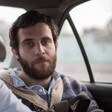Rights and Accountability 3 October 2014

Dozens of Palestinian activists have set up tents in Kufr Birim and attempted to rebuild the homes and buildings from which their ancestors were driven.
ActiveStillsIsraeli occupation authorities yet again attempted to intimidate Palestinian activists in the Galilee village of Kufr Birim by posting signs on two buildings in the destroyed village on Friday, 3 October.
The Israel Lands Administration posted signs on the walls of the village’s historical church and the communal kitchen declaring that entrance to each of the buildings is forbidden.
Edward Jerias is a founding member of Al-Awda (“The Return”), a group established in 1982 to campaign for the right of return for Palestinians ethnically cleansed from Kufr Birim by Israel. Inspired by the 2012 return of several youth activists to Iqrit, another destroyed Palestinian village, Al-Awda organized a return to the village in August 2013.
Since then, dozens of activists have set up tents and attempted to rebuild the homes and buildings from which their ancestors were driven.
“This isn’t anything new,” Jerias told The Electronic Intifada, referring to Israel’s ban on entering the church and kitchen. “Israel has been trying to frighten us since we returned. They want to make the conditions too difficult for us to stay.”
“But this is the first time in decades they have prevented us from entering the church,” he added, adding that the church has been used for weddings and religious ceremonies for more than 25 years.
Internally displaced
Kufr Birim was depopulated in October 1948 during the tail end of Operation Hiram, a military offensive launched by the newly-formed Israeli army that resulted in the occupation of the Upper Galilee region of historic Palestine.
Though the refugees were promised they could return after a few weeks, the military repeatedly prevented them from going back to their homes. In 1953, despite a court ruling in their favor, Israeli warplanes bombed the village.
During the Nakba, the 1948 ethnic cleansing of Palestine, hundreds of thousands of Palestinian refugees were scattered across the map of the Middle East. Tens of thousands, however, became internally displaced persons, among them those evicted from Kufr Birim. These refugees are prevented from returning to their ancestral lands.
Eventually accepting Israeli citizenship, these internally displaced persons are today part of the estimated 1.7 million Palestinians who live in present-day Israel and suffer from more than fifty laws that muzzle their political expression and limit their access to state resources, according to the Haifa-based Adalah Legal Center.
Intimidation
Since their return last year, Israeli authorities have subjected the activists to continuous harassment and intimidation.
Accompanied by police forces, land authorities demolished several tents and other structures in June, despite a pending appeal in a Nazareth-based Israeli district court to allow the campers to stay in Kufr Birim.
On 11 August, just days after Al-Awda hosted a youth camp about the Palestinian right of return, police and land authorities confronted the activists yet again. They recorded their identification card information and warned them they would cut off the electricity, gas and water and remove many of their belongings, including camping tents and other supplies.
Entrance forbidden
More recently, land authorities and police raided and looted the village on 27 August, as reported by The Electronic Intifada at the time.
The signs, which were discovered Friday morning, say that entrance is forbidden. Anyone who enters, the order reads, is doing so by “is acting by their own volition” and will “bear the consequences,” though details were not specified.
Edward Jerias says Israel’s attempts to deter the activists from staying in the village “are pointless.”
“We returned already,” he said. “If we are forced to leave, we will return again.”






Comments
Americans need to realize
Permalink maggie replied on
Americans need to realize that it is Palestinian Christians, as well as Palestinian Muslims, who are discriminated against and oppressed by the government of Israel.
Israel hates even its Christian Palestinians
Permalink Mike replied on
Make no mistake about it. This is why Christians are banned from distributing bibles, talking about their religion in public, putting up Christmas trees, and are regularly punched, kicked, spat upon and beaten by Israeli Jews (especially t he ultra-orthodox)- and they are NEVER arrested for it. Religious materials inclding bibles are often burned, too.